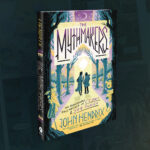Nostalgia is the only thing going for Hollywood these days.
It’s not a new trend. For decades, sequels, reboots, and franchise expansions have been the film industry’s most bankable bets. It’s likely the vast majority of 2019’s highest-grossing movies will be of this sort: recycled Disney favorites (Aladdin, The Lion King, Dumbo); rebooted horror classics (Child’s Play, Pet Sematary); sequels of various sorts (Toy Story 4, John Wick 3, The LEGO Movie 2); and new entries in franchises few people were probably missing (Godzilla: King of the Monsters, Men in Black International).
Within this broad trend of nostalgia is an intriguing subgenre: movies about music nostalgia. Three recent films in particular capture the trend: Bohemian Rhapsody, Rocketman, and Yesterday. All three take an iconic song title as the film’s title, and all three are essentially singalongs for audiences who grew up on the music of Queen, Elton John, and The Beatles (respectively). Next month another film, Blinded by the Light, will foreground the music of Bruce Springsteen. Doubtless others will follow.
What is it about music specifically that makes us so nostalgic, and why are movies like this—and the “histories” they tell—so attractive to audiences today? What does it say about our culture and where we find meaning?
Music and Nostalgic Joy
Part of why audiences love movies like Bohemian Rhapsody, Rocketman, and Yesterday is that they tell classic rags-to-riches stories (see also: A Star Is Born). They follow a formula that is perhaps especially resonant in today’s “anyone can become famous” age of self-made stardom: Unknown artist catches a break, becomes rich and famous (eventually a global icon), suffers the downsides of fame and fortune, battles demons, creates even more iconic music because of battling demons, and ultimately finds redemption in a rediscovery of the purity of pre-stardom relationships and creativity (e.g. “Goodbye Yellow Brick Road”).
But beyond their tried-and-true plot arcs, these films are mostly attractive because of their songs, recognizing that music is among the most powerful triggers for memory and nostalgia. We hear a song and it takes us back: to happier times, to simpler times, to times that are not now.
Each of these films foregrounds the beloved songs of its respective British pop icon subject. Bohemian does it in the most straightforward manner, weaving Queen songs into the story’s linear progression where they naturally fit, culminating in the band’s famous 1985 set at Live Aid. Rocketman also weaves in John’s songs, though in more whimsical, mythologized ways. Yesterday doesn’t even bother with the stories behind the Beatles songs; it simply plucks them out of the past and performs them for us in the present, for our nostalgic listening pleasure. It imagines a world where everyone has Beatles amnesia, and where one lucky singer/songwriter (Himesh Patel) who does remember the Beatles can reintroduce their songs to the world (as his own songs). In this sense it’s the most honest of the three films—recognizing that the songs themselves, the nostalgic joy they trigger when we hear them, is what audiences are really there for, more than the stories of the real people and real historical contexts that birthed them.
History as Sugarcoated Consumer Commodity
This is one of the troubling aspects of nostalgia-as-consumer-commodity. It turns history into something we can selectively draw from to satiate our hunger for “vintage” pleasures; something we can appropriate to fit our present zeitgeist, conveniently sugarcoating it and extracting it from its less-palatable contextual baggage. This is a dangerous approach to history.
Consider the sanitized history of Bohemian Rhapsody, a PG-13 film about an X-rated life. As Warren Cole Smith observes in WORLD, the film conveniently leaves out the sordid details of Freddie Mercury’s biography, including all manner of drug-fueled hedonism and reckless promiscuity at the dawn of the AIDS crisis (he likely had hundreds of male sex partners even after he became HIV-positive in the early 1980s). But the erasure of Mercury’s vice-ridden life was essential to Rhapsody’s box-office success. Sugarcoated nostalgia is an easier sell than unflinching looks at history.
Sugarcoated nostalgia is an easier sell than unflinching looks at history.
It’s mythologizing more than narrating history. This is common in movies, of course. Most period films twist history to their own biases and values. Just this year, films about Queen Anne (The Favourite) and Emily Dickinson (Wild Nights with Emily) re-figured these historical women as sexually active lesbians. Quentin Tarantino’s Once Upon a Time in Hollywood (like his Inglourious Basterds) pays homage to a colorfully mythologized past by outlandishly revising its outcomes.
Christians are guilty of this too. We are prone to selectively celebrate the successes of Christian history (William Wilberforce!) while conveniently forgetting its ugly failures (slavery, racism, various genocides). We tend to valorize Martin Luther without mentioning his anti-Semitism; Jonathan Edwards without mentioning his practice of slavery; Martin Luther King Jr. without mentioning his sexual indiscretions; and so on. We are guilty of our own revisionist history-telling, whether it be about a fabled “Christian America” or an alternate universe where Mother Teresa–type Christians are the norm, rather than (tragically) the exceptions.
Importance of Context
To truly honor history is not just to poach it for the pleasant stuff. It is to plumb its messy depths, reckon with it, and learn from it—not just consume it as nostalgic pop amusement. It’s like the difference between traveling as a consumer-tourist versus a curious learner. The former snaps selfies in front of “important” landmarks, mostly to have something cool to post to Instagram; the latter seeks to learn the landmark’s history and understand its cultural importance. The latter approach doesn’t suck the fun out of the experience; it enhances it.
As Christians know, one of the fundamental principles of biblical interpretation is the importance of context. As much as our anachronistic age of individualism leads us to a “here’s what the passage means to me” hermeneutic, the reality is the Bible’s meaning has much more to do with understanding the Ancient Near East than it does with understanding how it makes me feel now. It requires work to understand this faraway context, but it’s worthwhile work.
To truly honor history is not just to poach it for the pleasant stuff. It is to plumb its messy depths, reckon with it, and learn from it—not just consume it as nostalgic pop amusement.
It’s one thing to enjoy a biblical psalm, or a Beatles song, merely for its pleasant words and melodies. But we enjoy these things in a fuller, richer sense when we know something about their contexts. Recent documentaries like Echo in the Canyon (about the mid-’60s folk-rock scene in Southern California) or Woodstock: Three Days That Defined a Generation (about the iconic 1969 music festival) do a better job digging into the actual histories behind the music.
Yesterday is a fun movie, but it is does a disservice to the Beatles songs by downplaying their context and suggesting they somehow transcend place and time. Would the world really go crazy for “Back in the U.S.S.R.” and “Penny Lane” and “Revolution” in 2019, as it did 50 years ago? Do the places and times (Liverpool, the 1960s, and so on) behind these songs matter? Are the artists themselves incidental to the songs and how they were received?
Whereas Rocketman and Bohemian at least attempt to situate songs within their real-life origins, Yesterday just presents an alternative universe where the audience can gleefully watch as Beatlemania (or now, “Jack Malik-mania”) unfolds again—as if for the first time.
You Can’t Repeat the Past
It’s fun to watch something like Yesterday and imagine the global phenomenon of the Beatles happening again today. But it’s not possible; it’s amusing to watch, yes, but it’s not the same. You can’t repeat the past. The zeitgeist of the 1960s, the geo-political landscape, a burgeoning global youth culture ready for something new—it can never be replicated. It can only be remembered.
The danger of nostalgia is that we confuse a healthy remembrance and fond appreciation for the past with a desire to see it repeated. We confuse what we can learn from the past—in all its complicated context—with a desire to re-live it today. Not only can this be debilitating for us, but it can also stifle healthy discontentment in our souls.
The danger of nostalgia is that we confuse a healthy remembrance and fond appreciation for the past with a desire to see it repeated. We confuse what we can learn from the past—in all its complicated context—with a desire to re-live it today.
Hollywood movies are cashing in on our nostalgic impulse, this healthy discontentment, by recycling the past as dopamine hits of familiarity—one musical biopic and Disney remake at a time. The lyrics of the Beatles’ iconic song announce a sort of creed for modern people whose trust in everything around them falters. What is left when all authorities crumble, and the endless horizons of contemporary belief render the search for meaning now too exhausting to endure?
“I believe in God the Father . . .” gives way to “I believe in yesterday . . .”
Nostalgia can thus morph into a sort of secular religion. But the nostalgic impulse is not bad in and of itself. It’s simply a symptom of a larger existential ache: we are eternal beings in an ephemeral world. The “passing away” nature of moments—that they are here, gone, and cannot be replicated again—pains us because we are destined for a world where things won’t die, decay, and pass away (see Rev. 21). They will be eternally new.
Rather than numbing our pain with an endless churn of content from the nostalgia industry, what if we channeled our time-bound restlessness toward expectation and hope for a future where time will be no more? There’s a massive opportunity here for churches and Christians. We are, after all, a people defined by an event—the resurrection—that upended the passing order of things and reoriented history around the hope of future glory. In a weary world where transcendence is often sought in “yesterday,” what we have to offer is firmly fixed on “tomorrow.”
Involved in Women’s Ministry? Add This to Your Discipleship Tool Kit.
 We need one another. Yet we don’t always know how to develop deep relationships to help us grow in the Christian life. Younger believers benefit from the guidance and wisdom of more mature saints as their faith deepens. But too often, potential mentors lack clarity and training on how to engage in discipling those they can influence.
We need one another. Yet we don’t always know how to develop deep relationships to help us grow in the Christian life. Younger believers benefit from the guidance and wisdom of more mature saints as their faith deepens. But too often, potential mentors lack clarity and training on how to engage in discipling those they can influence.
Whether you’re longing to find a spiritual mentor or hoping to serve as a guide for someone else, we have a FREE resource to encourage and equip you. In Growing Together: Taking Mentoring Beyond Small Talk and Prayer Requests, Melissa Kruger, TGC’s vice president of discipleship programming, offers encouraging lessons to guide conversations that promote spiritual growth in both the mentee and mentor.

































